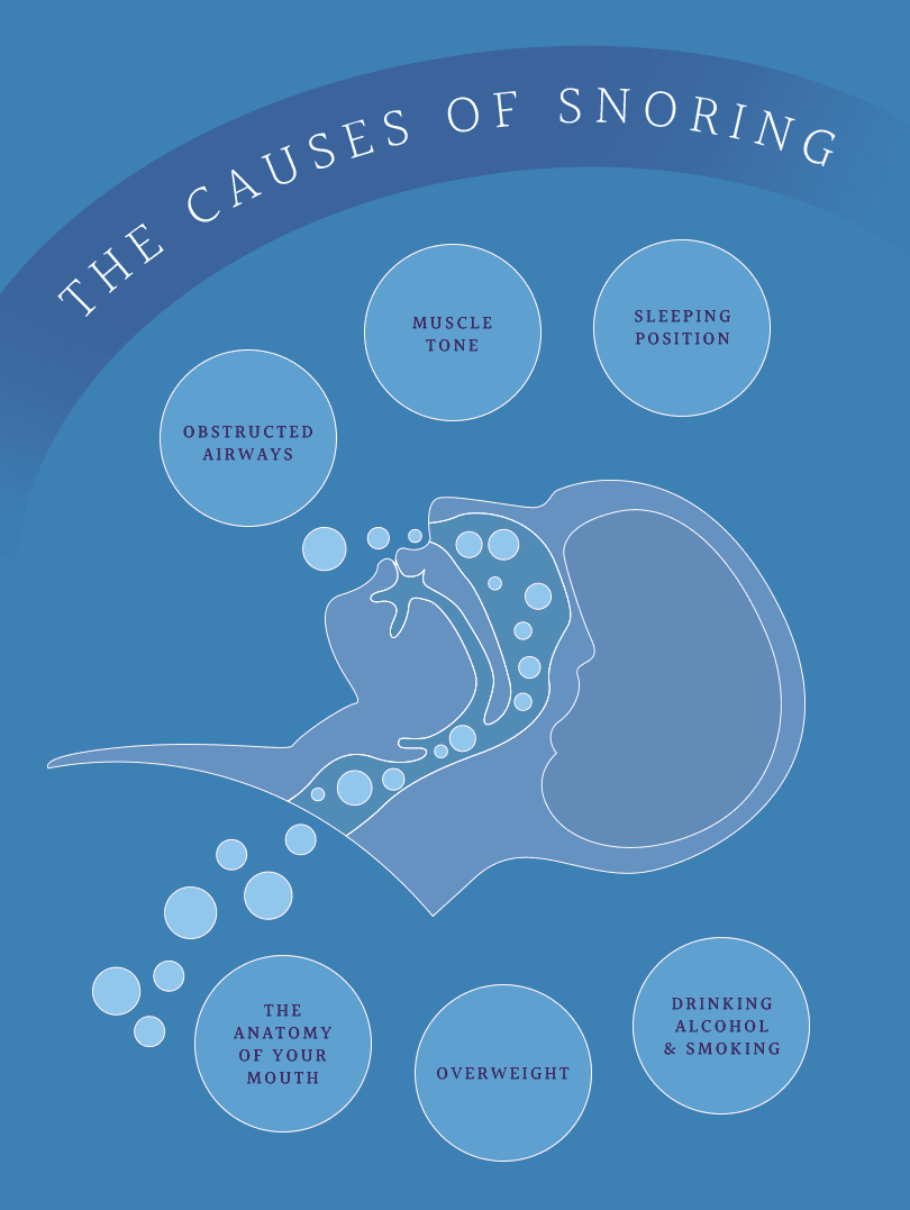How to Stop Snoring: Tips on Better Sleep for You and Your Partner
22nd January 2020
Slumber Centre
Have you ever found yourself lying in bed staring at the ceiling while your partner is conducting a full symphony from their mouth? You are not alone.
How to stop snoring
According to a recent study, 90% of people in the UK live with a snoring partner, leaving many of us searching for ways to stop snoring.
Snoring can affect your health, relationships, and general well-being, so if you or your partner suffer, it’s important to look at the reasons behind it to see if you can make any changes and stop the snoring once and for all.
What causes snoring?
Before we cover how to stop snoring, it’s important to understand why it’s happening in the first place.
As most of us know, snoring is the noise a person makes during their sleep – not usually a pleasant one. It happens when the airflow through your mouth, tongue, and nose vibrates as you breathe, much like our vocal cords do to form our voice.
This happens during our sleep when we’re most relaxed and our breathing is heavier.
Is snoring something to worry about?
Snoring is a common condition which has a tendency to worsen with age, although statistically, it does occur more for men and people who are overweight.
Usually occasional snoring is not something to be concerned about. However, if this becomes a regular occurrence, it could start to affect your health and that of your partners, and, in more severe cases, be an indication of a more serious problem such as sleep apnea.
Snoring itself is a bit of an unusual condition in that it’s more likely to affect partners and family members than the person responsible for the snoring.
If snoring is becoming a persistent issue, speaking to a medical professional to diagnose the issue could help.
7 common causes of snoring

There’s a number of reasons for why we snore, and once you understand where the problem is coming from you can begin working out how to stop snoring.
1. Obstructed airways
A common cause of snoring is obstructed nasal airways which can be caused due to a sinus infection, allergies, and deformities of the nose such as a deviated septum and nasal polyps.
2. The anatomy of your mouth
You may have a soft, thick, low palate or a long uvula (which is essentially dangling tissue in the back of your mouth), which can narrow the opening from the nose to the throat.
People who are overweight can also develop extra tissue at the back of their throats which can narrow airways.
In the case of children, snoring can be due to enlarged tonsils.
3. Muscle tone
If you have poor muscle tone in the tongue or throat, the muscles can become too relaxed and as a result, allows them to collapse and fall back into your airway.
4. Sleeping position
You are more likely to snore if you sleep on your back – lying on your back results in the base of your tongue and soft palate collapsing to the back wall of your throat. This causes the vibrating sound during your sleep.
5. Overweight
People who are overweight are more likely to snore due to increased weight around the neck area. It can squeeze the internal diameter of your throat and therefore narrow the airway.
6. Drinking alcohol & smoking
Certain substances can help the muscles relax, which in turn makes us more likely to snore.
Alcohol, smoking, certain medications, and other muscle relaxants can all have this effect on the body. With that in mind, steering clear from substances like these at least 3 hours before bed can help you to stop snoring.
7. Allergies
As a general rule, anything that prevents you from breathing through your nose, such as a cold or allergies, can cause you to snore.
If you suffer from allergies, eliminating any potential allergens from your bedroom can help ease the symptoms. This includes washing bed linen on a regular basis to remove dust mites or even replacing an old mattress, and not allowing pets in the bedroom.
How to stop snoring
The good news is… snoring doesn’t have to affect your life!
In most cases, a lifestyle change is all the treatment you need to stop snoring. Considering your sleeping position, your surroundings, and even what you do during the day can help you (and your partner) get a better night’s sleep.
If lifestyle changes don’t appear to be working then it could be time to speak to a medical professional. When it comes to snoring, help is available!
